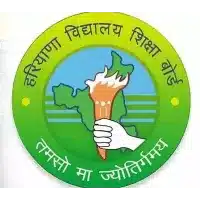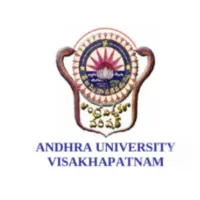Latest Applications Open 2024:
HTET stands for the Haryana Teachers Eligibility Test. It is conducted by the Haryana School of Board Education (HSBE).
It is conducted for the post of PRT, TGT, and PGT teachers in the state.
The HTET exam is mandatory to secure a teacher’s job in the state. Aspirant candidates who qualify for this exam have been eligible to teach in the government schools recognized by DSE.
HTET 2024 Syllabus
Candidates can Check the Complete Information about HTET Syllabus 2024 in this Article. Candidate can refer to the HTET Syllabus 2024 who is interested to apply for the Haryana Teacher Eligibility Test. HTET 2024 Entrance Examination will be conducted on three Levels i.e 1st, 2nd & 3rd.
Applicants who want to teach I to V Class Should have to write Level 1 i.e PRT, who want to teach VI to VIII Class they should have to write Level 2 i.e TGT and Similarly, who want to teach IX to XII Class they should have to write Level 3 i.e PGT.
Latest Applications For Various UG & PG Courses Open 2024
-
- Parul University | Admissions Open for All Courses 2024. Apply Now
- Chandigarh University | Admissions Open for All Courses 2024. Apply Now
- NIIT | Admissions Open for All Courses 2024. Apply Now
- KL University | Admissions Open for All Courses 2024. Apply Now
- Alliance UG | Admissions Open for All Courses 2024. Apply Now
- GD Goenka | Admissions Open for All Courses 2024. Apply Now
HTET 2024 Exam will be held on the 2nd week of November 2024 in PRT, TGT & PGT Levels. More information about HTET Syllabus 2024 is mentioned below. The candidate has to Check Below.
Child Development and Pedagogy
The concept of development and its relationship with learning
- Principles of the development of children
- Influence of Heredity & Environment
- Socialization processes: Social world & children (Teacher, Parents, Peers)
- Piaget, Kohlberg, and Vygotsky: constructs and critical perspectives
- Concepts of child-centered and progressive education
- Critical perspective of the construct of Intelligence
- Multi-Dimensional Intelligence Language & Thought
- Gender as a social construct; gender roles, gender-bias and educational practice
- Individual differences among learners, understanding differences based on diversity of language, caste, gender, community, religion, etc.
- The distinction between Assessment for learning and assessment of learning; School-Based Assessment, Continuous & Comprehensive Evaluation: perspective and practice
- Formulating appropriate questions for assessing readiness levels of learners; for enhancing learning and critical thinking in the classroom and for assessing learner achievement.
The concept of Inclusive education and understanding children with special needs
Latest Applications For Various UG & PG Courses Open 2024
-
- Parul University | Admissions Open for All Courses 2024. Apply Now
- Chandigarh University | Admissions Open for All Courses 2024. Apply Now
- NIIT | Admissions Open for All Courses 2024. Apply Now
- KL University | Admissions Open for All Courses 2024. Apply Now
- Alliance UG | Admissions Open for All Courses 2024. Apply Now
- GD Goenka | Admissions Open for All Courses 2024. Apply Now
- Addressing learners from diverse backgrounds including disadvantaged and deprived
- Addressing the needs of children with learning difficulties, ‘impairment’ etc.
- Addressing the Talented, Creative, Specially abled Learners
Learning and Pedagogy
- How children think and learn; how and why children ‘fail’ to achieve success in school performance.
- Basic processes of teaching and learning; children’s strategies of learning; learning as a social activity; social context of learning.
- Child as a problem solver and a ‘scientific investigator’
- Alternative conceptions of learning in children, understanding children’s ‘errors’ as significant steps in the learning process.
- Cognition & Emotions
- Motivation and learning
- Factors contributing to learning – personal & environmental
English/Hindi Language
Language Comprehension Reading unseen passages
- Questions based on the passage, including antonyms and synonyms from the passage of prose or drama or poem.
- grammar and verbal ability (Prose passage may be literary, scientific, narrative or discursive)
Pedagogy of Language Development
- Learning and acquisition
- Principles of Language Teaching
- Role of listening and speaking; function of language and how children use it as a tool
- A critical perspective on the role of grammar in learning a language for communicating ideas verbally and in written form
- Challenges of teaching language in a diverse classroom; language difficulties, errors and disorders
- Language Skills
- Evaluating language comprehension and proficiency: speaking, listening, reading and writing
- Teaching-learning materials: Textbook, multi-media materials, a multilingual resource for the classroom
- Remedial Teaching.
Mathematics
- Geometry – Circle, Triangle, Rectangle, Square and related theorems
- Shapes and Spatial Understanding
- Solids around us – Cube, Cuboid, Cone, Cylinder, Sphere, Hemisphere, etc.
- Number System – LCM, HCF, Factors, Unit digit, Digit Sum, etc.
- BODMAS – Simplifications including Addition, Subtraction, Multiplication, and Division
Pedagogical issues
- Nature of Mathematics/Logical thinking; understanding children’s thinking and reasoning patterns and strategies of making meaning and learning
- Place of Mathematics in Curriculum
- Language of Mathematics
- Community Mathematics
- Evaluation through formal and informal methods
- Problems of Teaching
Quantitative Aptitude
- Simplification
- Interest
- Percentage
- Ratio and Proportion
- Average Problems on Ages Speed
- Time & Distance
- Profit & Loss
- Number Series.
- Number System.
- Mensuration.
- Data Interpretation.
- Time & Work.
- Algebra.
- Geometry.
Reasoning Ability
- Classification.
- Analogy.
- Coding-Decoding.
- Matrix.
- Word formation.
- Arranging words.
- in Meaningful order or Dictionary order.
- Venn diagram.
- Directions; Distances.
- Blood Relations.
- Missing Number.
- Puzzles. Series.
- Non-Verbal Reasoning.
Haryana General Knowledge
- Culture of Haryana.
- Haryana History.
- Geography Haryana.
- Environment – Haryana.
- Economy/Polity of Haryana.
- General Science.
- Misc.
- GK- Sports, Books, Dates, Schemes.
Environmental Studies
- Relationships.
- Work and Play.
- Animals.
- Plants.
- Food.
- Shelter.
- Water.
- Pedagogical Issues.
- Concept and scope of EVS.
- Significance of EVS integrated EVS.
- Environmental Studies & Environmental Education.
- Learning Principles.
- Scope & relation to Science & Social Science.
- Approaches to presenting concepts.
- Experimentation/Practical Work. Discussion/CCE. Teaching material/Aids Problems
If you have any other questions about HTET Syllabus 2024, you can write your questions in the comment box given below.

I’m Manisha Das, passionate about educational news and sharing insights on teaching exams. My passion for education news is fueled by my love for creating new things and exploring new ideas. With my dedication and passion for teaching exams, I am committed to providing accurate and informative updates for the Entrance Exam. Join me in discovering the latest developments and exploring the dynamic world of education!

